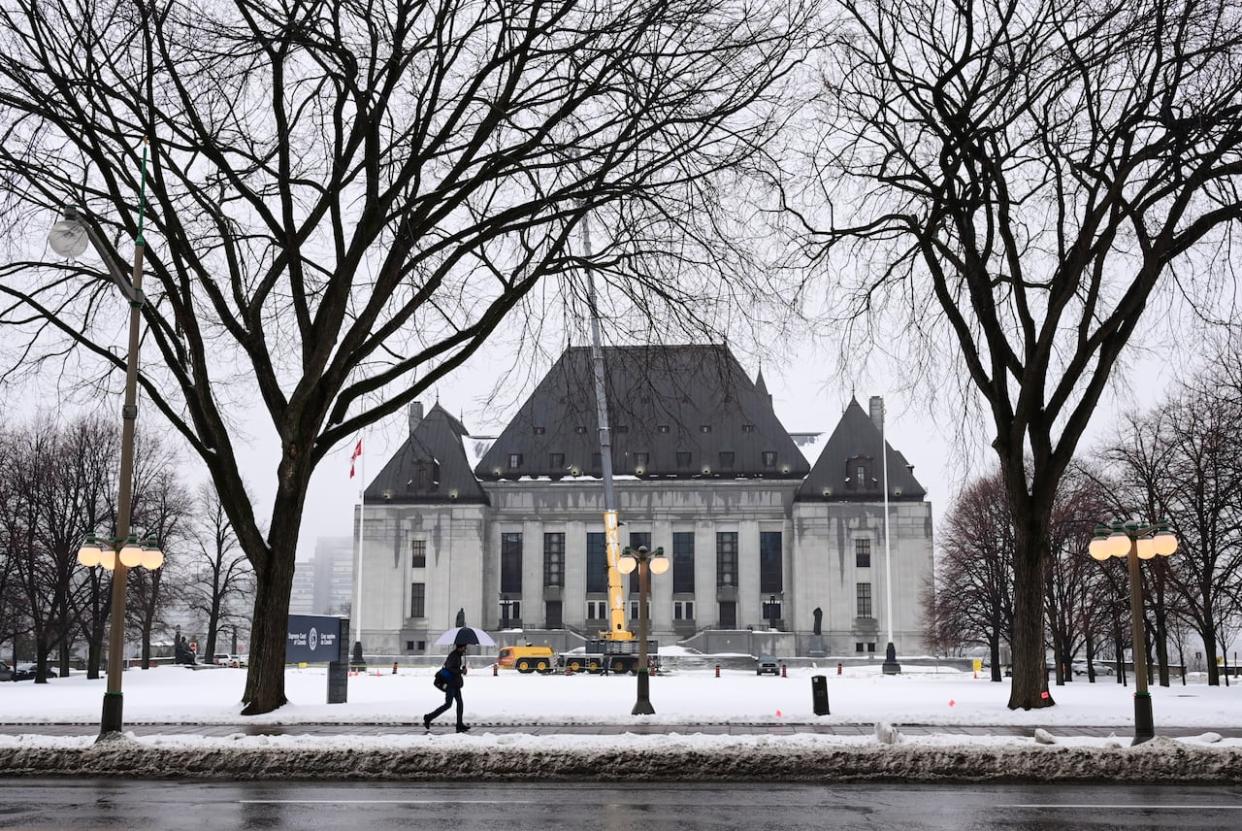Supreme Court of Canada overturns N.W.T. appeal court ruling on who can attend French school

The Supreme Court of Canada has overturned a 2021 decision by the N.W.T.'s Court of Appeal affecting the ability of some students to attend French-language schools in the territory.
The decision brings to an end a back-and-forth legal battle between the Commission scolaire francophone des Territoires du Nord-Ouest (CSFTNO) and the N.W.T. Department of Education over whether students who don't have a constitutional right to French education, or "non-rights holders," should be permitted entry into the Francophone school system.
That fight dates to 2018, when then-minister Caroline Cochrane decided not to admit six students to the territory's Francophone schools in Yellowknife and Hay River, against the wishes of the Francophone school board. That ministerial decision was refuted by the N.W.T. Supreme Court in 2020, but was successfully appealed to the N.W.T. Court of Appeal in 2021.
Now, the Supreme Court of Canada has sided with the N.W.T. Supreme Court and set aside Cochrane's ministerial decision, finding it "unreasonable."
Though the children in question were not covered by Section 23 of the Charter of Rights and Freedoms, which protects the rights of Francophone kids to access French education, the court wrote that Cochrane should have considered that section's values — in particular, "the values of preservation and development of minority language communities" when deciding whether to admit children of non-rights holders.
The court found that Cochrane had instead based her decision more on other factors.
"The Minister attached too much importance to her duty to make consistent decisions and gave disproportionate weight to the cost of the contemplated services in the exercise of her discretion," the decision reads.
According to the court, part of Section 23 means that "pedagogical requirements had to have more weight."
The ruling was initially expected to also address a Charter argument raised by the appellants that their right to use French in court without an interpreter was infringed — an argument born from the hearing before the N.W.T. Court of Appeal, where an interpreter was used.
But the Supreme Court of Canada wrote that it would leave that argument for another day, saying it wouldn't be appropriate to rule on a constitutional issue that isn't vital to the main dispute at hand.
While Cochrane and education ministers before her had applied what the N.W.T. government has called a "restrictive" approach to who can and cannot attend French schools, the territory's education department changed its approach in 2020 to a less restrictive one.
'We were right,' board says
Speaking to CBC on Friday, CSFTNO chair Jean de Dieu Tuyishime said he was "very, very happy" with the court's ruling.
"We were excited to see the decision of the court because we saw that all what we were saying, or what we were asking for — we were right," he said.
Tuyishime said it affirmed that the French board is best able to decide who should be accepted into its schools.
"We are the expert in regard of education," he said.
The board, the court wrote, is a "body with the expertise needed to assess the educational needs of the linguistic minority," which Cochrane did not duly consider when assessing the applications for admission.
Yvonne Careen, superintendent of the board, said she was up early on Friday in anticipation of the decision coming down. She said it's an exciting day, and calls the decision a positive one with significant implications.
"It's a decision that clarifies that yes, we have a place in the decision-making process of the [Government of the Northwest Territories], in anything that touches our schools, including admissions," she said.
Careen also argues that it also clarifies that "cost is not everything," when it comes to Section 23 and Francophone education rights. She says that has potential implications for the board's efforts to see a new Francophone high school built in Yellowknife, and an addition built on the school in Hay River.
"They [the territorial government] have to not only consider costs, now they must take into account — and it's the highest court in Canada that said so — they must take into account the needs of our students on the pedagogical side as well,' she said.
"And if that means the construction of a new high school in Yellowknife, that's what it means. If that means the addition in Hay River, that's what it means. And we will be looking forward to discussions."

